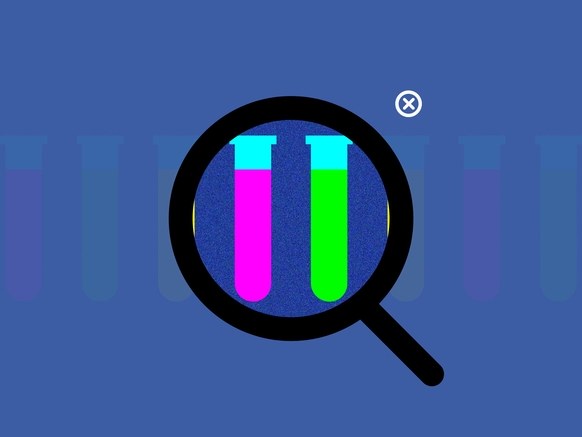Category: big data – Page 3

The Human, Smart and Sustainable Future of Cities
The city of the future is a symbol of progress. The sci-fi vision of the future city with sleek skyscrapers and flying cars, however, has given way to a more plausible, human, practical, and green vision of tomorrow’s smart city. Whilst smart city visions differ, at their heart is the notion that in the coming decades, the planet’s most heavily concentrated populations will occupy city environments where a digital blanket of sensors, devices and cloud connected data is being weaved together to build and enhance the city living experience for all. In this context, smart architecture must encompass all the key elements of what enable city ecosystems to function effectively. This encompasses everything from the design of infrastructure, workspaces, leisure, retail, and domestic homes to traffic control, environmental protection, and the management of energy, sanitation, healthcare, security, and a building’s eco-footprint.
The world’s premier cities and architects are competing to design and build highly interconnected smart environments where people, government and business operate in symbiosis with spectacular exponentially improving technologies such as big data, the Internet of Things (IoT), cloud computing, hyperconnectivity, artificial intelligence (AI), robots, drones, autonomous green vehicles, 3D/4D printing, smart materials, and renewable energy. The architectural promise of future smart cities is to harmonize the benefits of these key disruptive technologies for society and provide a high quality of life by design. Some have already implemented smart city architecture and, as the concepts, experiences and success stories spread, the pursuit of smart will become a key driver in the evolving future of cities as communities and economic centres. Here we explore some of the critical trends, visions, ideas, and disruptions shaping the rise of smart cities and smart architecture.
Smart Cities – Purpose, Engagement and Vision

Selfish Ledger: Google’s mass sociology experiment
Check out the internal Google film, “The Selfish Ledger”. This probably wasn’t meant to slip onto a public web server, and so I have embedded a backup copy below. Ping me if it disappears. I will locate a permanent URL.
This 8½ minute video is a lot deeper—and possibly more insipid—than it appears. Nick Foster may be the Anti-Christ, or perhaps the most brilliant sociologist of modern times. It depends on your vantage point, and your belief in the potential of user controls and cat-in-bag containment.
He talks of a species propelling itself toward “desirable goals” by cataloging, data mining, and analyzing the past behavior of peers and ancestors—and then using that data to improve the experience of each user’s future and perhaps even their future generations. But, is he referring to shared goals across cultures, sexes and incomes? Who controls the algorithms and the goal filters?! Is Google the judge, arbiter and God?
Consider these quotes from the video. Do they disturb you? The last one sends a chill down my spine. But, I may be overreacting to what is simply an unexplored frontier. The next generation in AI. I cannot readily determine if it ushers in an era of good or bad:
- Behavioral sequencing « a phrase used throughout the video
- Viewing human behavior through a Lemarkian lens
- An individual is just a carrier for the gene. The gene seeks to improve itself and not its host
- And [at 7:25]: “The mass multigenerational examination of actions and results could introduce a model of behavioral sequencing.”
There’s that odd term again: behavioral sequencing. It suggests that we are mice and that Google can help us to act in unison toward society’s ideal goals.
Today, Fortune Magazine described it this way: “Total and absolute data collection could be used to shape the decisions you make … The ledger would essentially collect everything there is to know about you, your friends, your family, and everything else. It would then try to move you in one direction or another for your or society’s apparent benefit.”
The statements could apply just as easily to the NSA as it does to Google. At least we are entering into a bargain with Google. We hand them data and they had us numerous benefits (the same benefits that many users often overlook). Yet, clearly, this is heavy duty stuff—especially for the company that knows everything about everyone. Watch it a second time. Think carefully about the power that Google wields.
 Don’t get me wrong. I may be in the minority, but I generally trust Google. I recognize that I am raw material and not a client. I accept the tradeoff that I make when I use Gmail, web search, navigate to a destination or share documents. I benefit from this bargain as Google matches my behavior with improved filtering of marketing directed at me.
Don’t get me wrong. I may be in the minority, but I generally trust Google. I recognize that I am raw material and not a client. I accept the tradeoff that I make when I use Gmail, web search, navigate to a destination or share documents. I benefit from this bargain as Google matches my behavior with improved filtering of marketing directed at me.
But, in the back of my mind, I hope for the day that Google implements Blind Signaling and Response, so that my data can only be used in ways that were disclosed to me—and that strengthen and defend that bargain, without subjecting my behavior, relationships and predilections to hacking, misuse, or accidental disclosure.
Philip Raymond sits on Lifeboat’s New Money Systems board. He co-chairs CRYPSA, hosts the Bitcoin Event, publishes Wild Duck and is keynote speaker at global Cryptocurrency Conferences. Book a presentation or consulting engagement.
Credit for snagging this video: Vlad Savov @ TheVerge


Data Can Enhance Creative Projects — Just Look at Netflix — By Michael D. Smith and Rahul Telang | Harvard Business Review
“Rather than killing creativity, perhaps big data is fostering a new golden age of creativity.”

It’s Gonna Get A Lot Easier To Break Science Journal Pay Walls — By Adam Rogers | Wired
““Access to science is going to be a first-world privilege,” Geltner says. “That’s the opposite of what science is supposed to be about.””